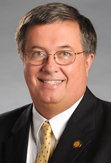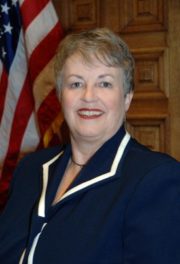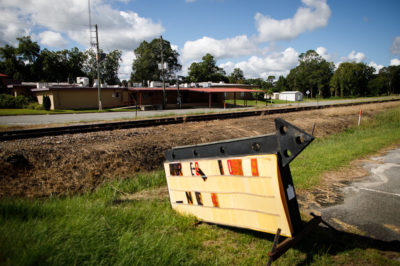Separate bills seeking to improve Georgia health care cruised through legislative panel hearings Thursday, with the sponsors working together to head off any possible conflicts on details that might prevent approval.
The Senate Health and Human Services Committee unanimously approved a House bill focused on boosting rural health care in Georgia.

House Bill 769, sponsored by state Rep. Rick Jasperse (R-Jasper), has several provisions, including facilitating the creation of ‘’micro-hospitals,’’ with 24/7 care and a small number of beds, to replace full-scale hospitals that close.
It would allow grants to help rural physicians afford medical malpractice insurance, as an incentive to practice in rural areas; and permit remote pharmacy prescription orders from outside of Georgia.
Jasperse told the Senate panel that the proposal would also urge the state Medicaid agency to streamline the administrative burden that rural hospitals face on billing issues.
The bill would establish a Rural Health System Innovation Center to develop new approaches for financing and delivering health care in Georgia. The center would train members of a hospital executive team, board members and hospital authority members in the nuances of health care financing.
Under the bill, hospital officials failing to undergo training could trigger a potential fine for the facility.

The legislation would also raise the rural tax credit for donations to rural hospitals from 90 percent to 100 percent.
At the current credit amount, Jasperse pointed out, the program has raised just $10 million out of a permitted $60 million for rural hospitals.
That provision raised a question from Democratic Sen. Nan Orrock of Atlanta, who said that there was another way to bring more money to rural health care – with federal dollars.
Orrock said $1 of state money could bring in $9 of federal funds. She was referring, without using the term, to the possibility of Georgia expanding its Medicaid program under the Affordable Care Act. More than 30 states have pursued expansion.
But the chair of the Senate panel, Renee Unterman (R-Buford), told Orrock: “You’re talking about Medicaid expansion. We’re not talking about Medicaid expansion.”

Georgia Republican leaders, who control the General Assembly, have repeatedly rejected the idea of expansion as too costly to the state.
The rural health legislation is a product of recommendations from the House Rural Development Council, which met several times last year and focused a great deal of attention on health care.

Six rural hospitals have closed in Georgia since the beginning of 2013, though two of them have reopened as downsized facilities. In addition, six of the state’s 159 counties have no physician, 63 counties are without a pediatrician, 66 without a general surgeon, and 79 without an OB-GYN. The medical provider shortage is expected to deepen, the council report said. (Here’s our article on rural hospital struggles.)
The Senate panel also approved a bill that aims to lower Georgia’s high rates of infant and maternal mortality by creating a designation reflecting the level of care offered by the state’s birthing hospitals.
Meanwhile, a top Senate health care proposal cleared the House Health and Human Services Committee on Thursday.
Senate Bill 357 would establish a Health Coordination and Innovation Council and a position of director of health care policy and strategic planning. This new official would report directly to the governor.

The council would bring together experts from academia and business, as well as elected and appointed leaders to provide a forum to share information and develop approaches to improve Georgia health care.
Sen. Dean Burke (R-Bainbridge), the sponsor of the bill, dropped a provision from its original version for an innovation center, to avoid possible conflict with the House bill’s rural center.
Unterman, summing up the teamwork between Burke and Jasperse, said, “It has been a very collaborative effort.”

